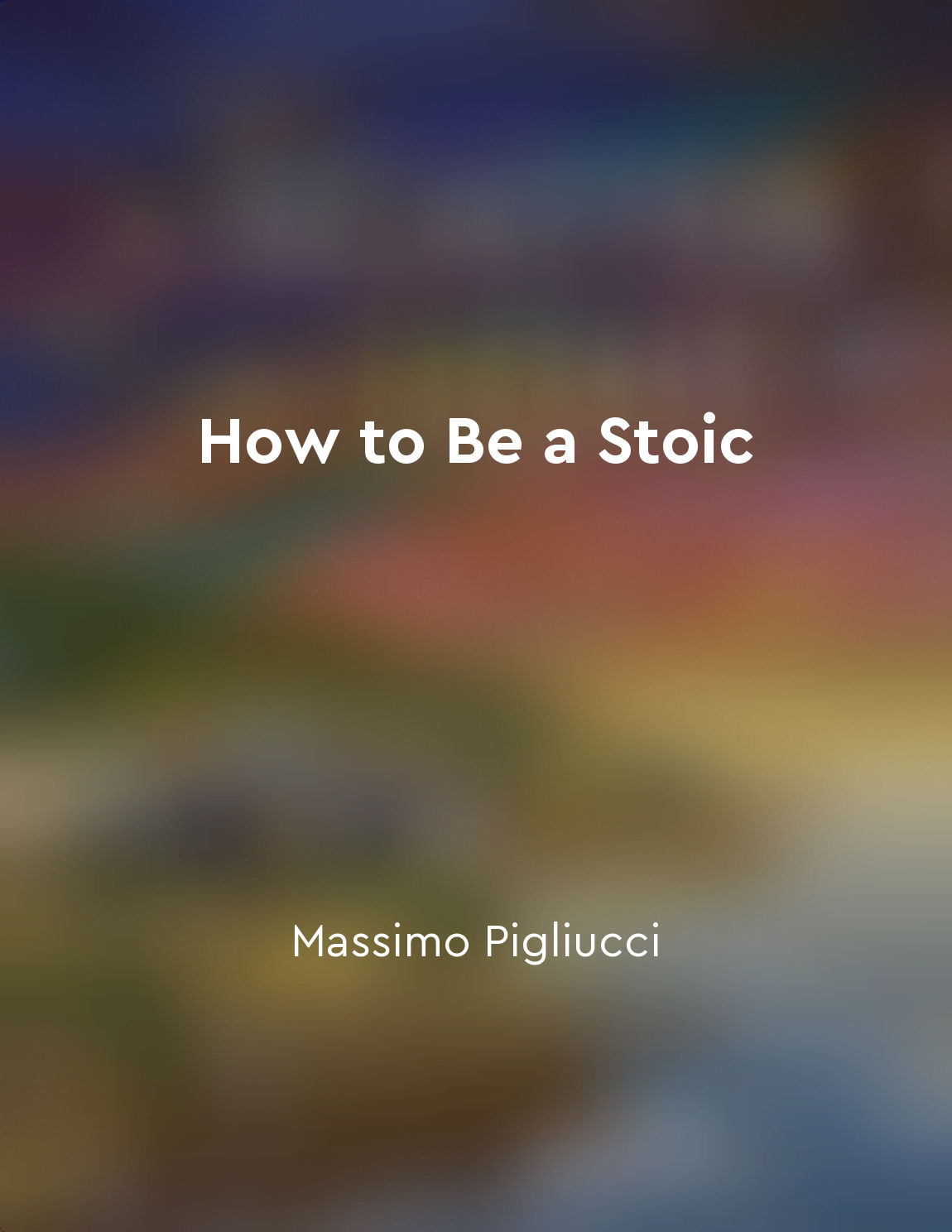We should strive to be virtuous in all aspects of our lives from "summary" of Stoicism and the Art of Happiness by Donald Robertson
The Stoics believed that the key to a good life was to live in accordance with virtue. They emphasized the importance of cultivating virtues such as wisdom, courage, justice, and temperance in all aspects of our lives. According to Stoic philosophy, virtue is the only true good, and all other things are indifferent. Therefore, the goal of life should be to develop our moral character and become virtuous individuals. Being virtuous means living in harmony with nature and fulfilling our potential as rational beings. It involves acting with wisdom and reason, rather than being driven by our emotions and desires. By cultivating virtues such as courage and self-control, we can overcome obstacles and face challenges with resilience and strength. Virtue allows us to live in accordance with our values and principles, regardl...Similar Posts
Rational selfcontrol is emphasized in Stoic philosophy
Stoic philosophy places a heavy emphasis on rational self-control, viewing it as a cornerstone of ethical living. The Stoics be...
Accept the impermanence of life
The Stoics teach us to come to terms with the fact that everything in life is impermanent. From our possessions to our loved on...
Stoics practice discipline and selfcontrol
The Stoics believed in the importance of discipline and self-control in order to lead a virtuous life. They emphasized the need...

Accept what you cannot control
The Stoics were adamant about the fact that some things are simply not up to us. There is very little we can do to change the p...
Stoicism promotes a life of moral integrity
The Stoics believed that one should live a life in accordance with nature, which for them meant living a life of moral integrit...
Finding strength in adversity builds character and resilience
Adversity is an inevitable part of life. It is not a question of if we will face challenges, but when. In these difficult momen...
It promotes a sense of duty and service to others
The Stoics believe that one's primary duty in life is to serve others. This concept is rooted in the idea that humans are ratio...

The Stoic concept of the dichotomy of control
The Stoics believed that some things in life are within our control while others are not. This distinction is crucial for maint...
It encourages us to accept hardships as opportunities for growth
The Stoic philosophy teaches us to view hardships not as obstacles to be avoided, but as opportunities for personal growth and ...
Emotional intelligence is a key component of Stoic philosophy
Margaret Graver delves deep into the intersection of emotional intelligence and Stoic philosophy in her book "Stoicism and Emot...
